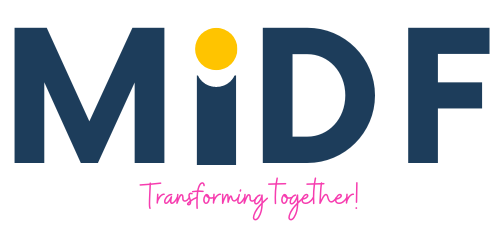
Theory of Change
MIDF’s Theory of Change envisions an inclusive and participatory approach to empower marginalized communities and individuals, focusing on various sectors such as livelihood, education, health, environment, women empowerment, social entrepreneurship, psychosocial development, disability empowerment, and financial empowerment. By providing the necessary resources, skills, and opportunities, MIDF aims to enable sustainable transformation and positive change at both the individual and community levels.
OUR GOAL
Empowering marginalized communities to achieve sustainable transformation through community participation, collaboration, , and holistic development.
Strategy
1. Needs Assessment and Context Analysis
MIDF conducts thorough needs assessments and context analyses to understand the specific challenges faced by marginalized communities. This step involves engaging with stakeholders, conducting research, and gathering data to inform program design and implementation.
2. Program Development and Implementation
Based on the needs assessment, MIDF develops and implements programs that are tailored to address the identified challenges. These programs are designed to be holistic, contextually relevant, and aligned with the organization’s core principles.
3. Capacity Building and Skill Development
MIDF focuses on capacity building and skill development to empower individuals and communities. Through targeted interventions, training workshops, and educational programs, MIDF equips individuals with the necessary knowledge, skills, and resources to overcome challenges and enhance their socio-economic well-being.
4. Community Engagement and Collaboration
MIDF actively engages with communities, stakeholders, and local partners to foster collaboration,ownership, and sustainability. By involving community members in program planning, implementation, and evaluation, MIDF ensures that interventions are contextually appropriate and inclusive.
5. Empowerment and Social Change
Through its programs and interventions, MIDF empowers individuals and communities to take control of their own development. By providing access to education, livelihood opportunities, control of their own development. By providing access to education, livelihood opportunities,change and contribute to the social and economic progress of their communities.
6. Monitoring, Evaluation, and Learning
MIDF employs a robust monitoring, evaluation, and learning framework to assess the effectiveness and impact of its programs. By collecting data, measuring outcomes, and gathering feedback, MIDF continuously learns and adapts its strategies to maximize the positive impact on individuals and communities.
7. Scaling and Advocacy
As MIDF’s impact grows, the organization actively advocates for systemic changes and policy reforms to address the root causes of social and economic disparities. By leveraging its expertise,evidence-based practices, and partnerships, MIDF works towards creating an enabling environment that supports sustainable development and social justice.
8. Continuous Improvement and Innovation
MIDF embraces a culture of continuous improvement and innovation. By staying abreast of emerging trends, best practices, and evolving needs, MIDF continually refines its approaches,develops new interventions, and adopts innovative solutions to better serve its beneficiaries.
Through this Theory of Change, MIDF aims to bring about sustainable transformation by addressing the needs of marginalized communities, promoting self-reliance, and empowering individuals to become catalysts for social change.